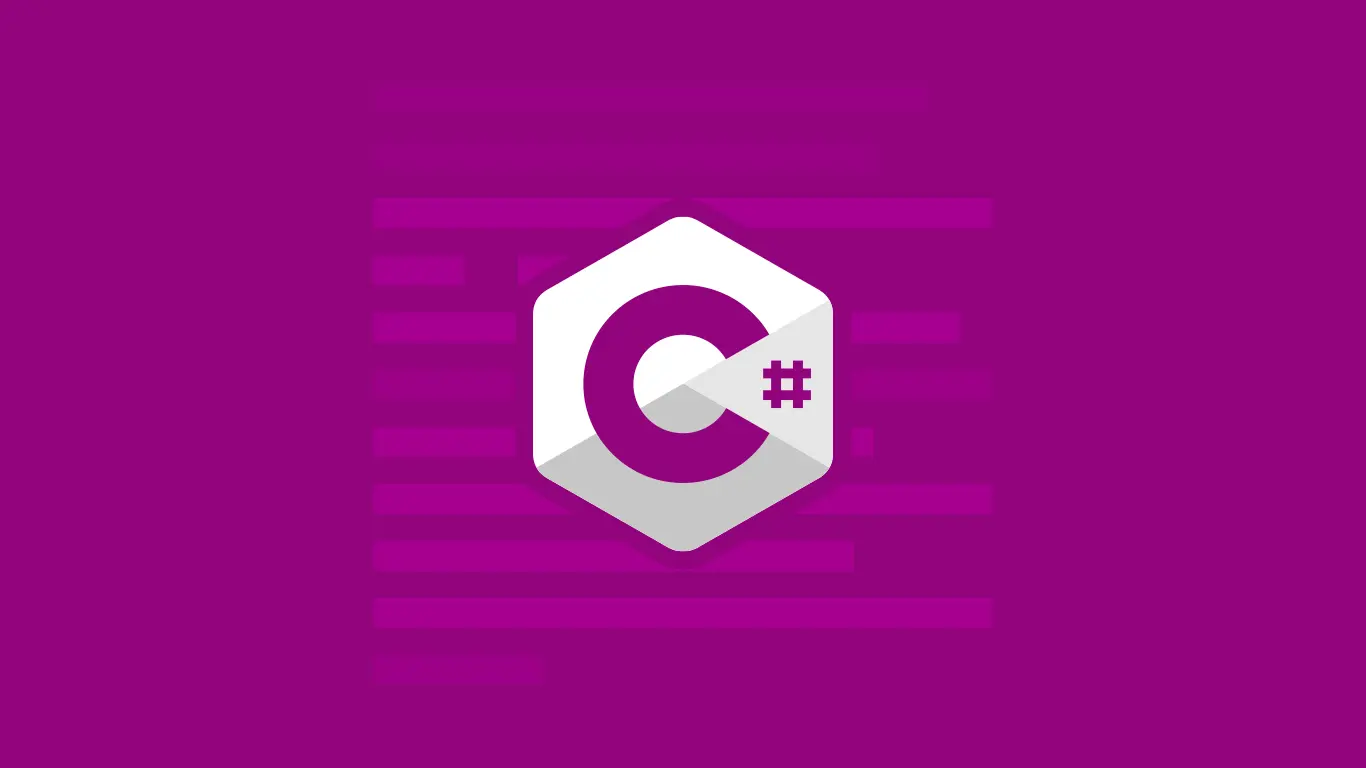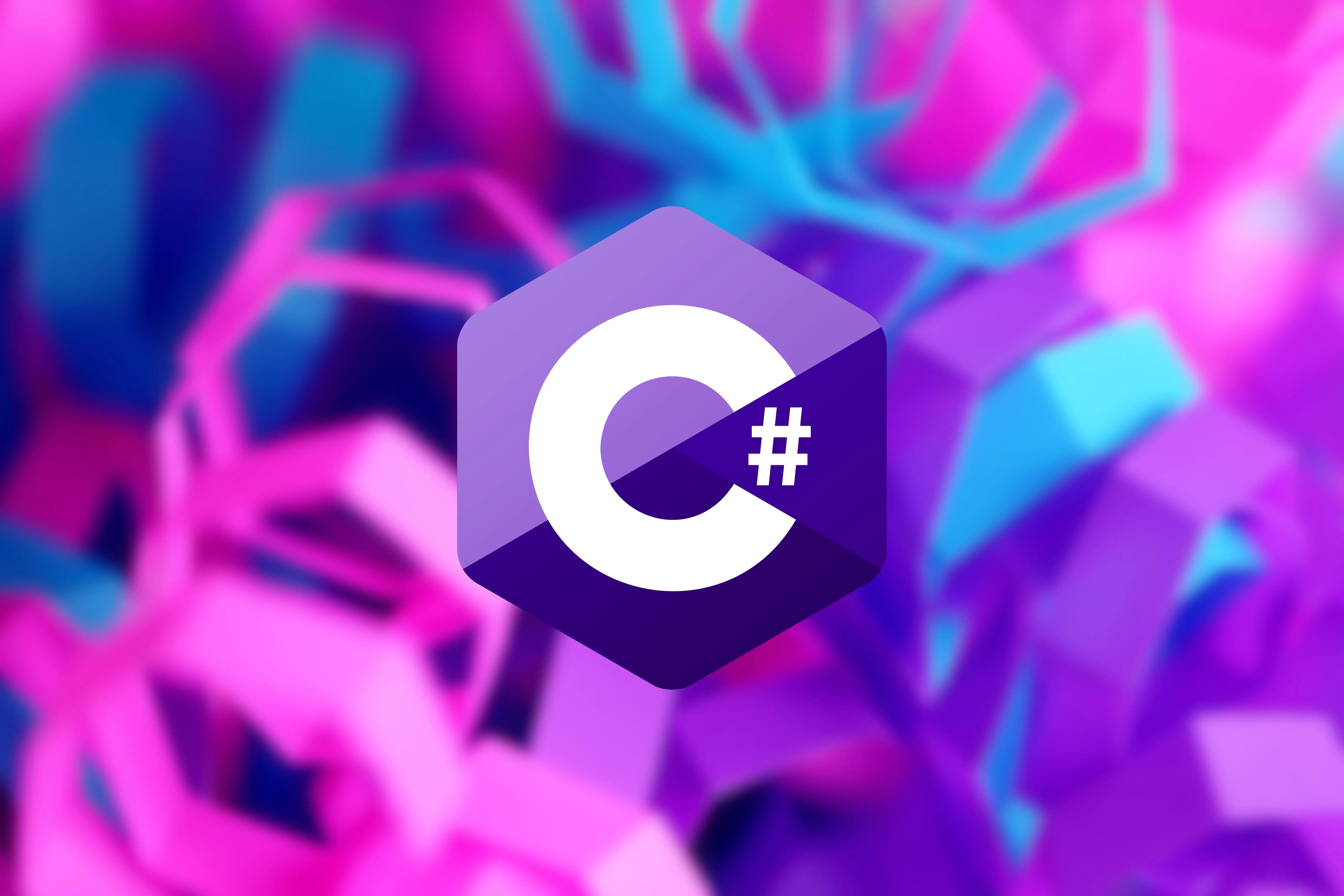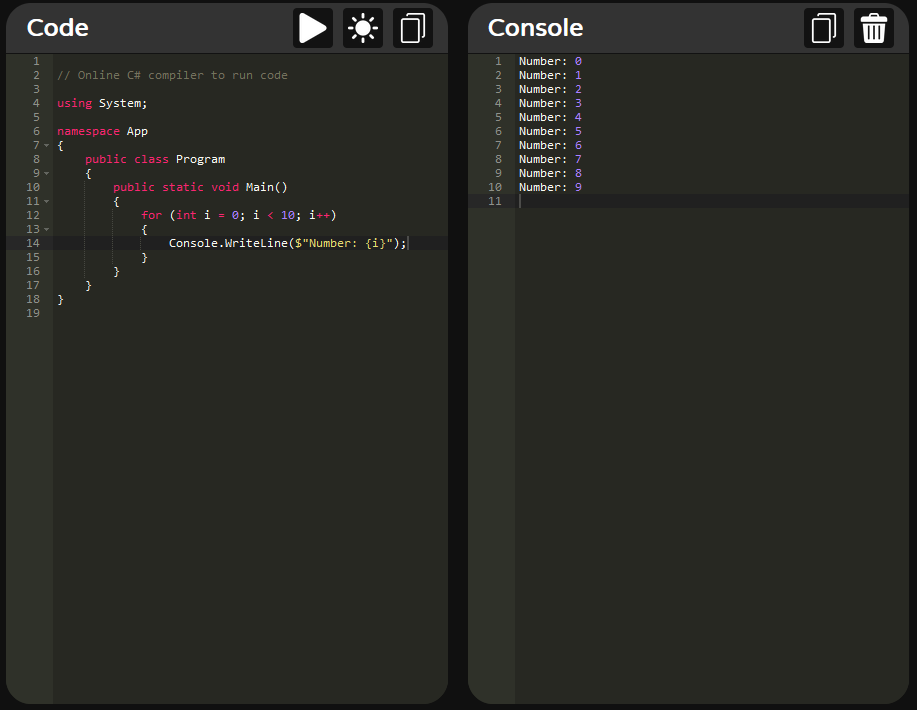How To Compile C# Code In Your Browser
What is C#?
Microsoft created the strong and adaptable programming language C# (pronounced "C sharp") for use with the.NET framework. C#, which debuted in 2000, was intended to be a contemporary object-oriented programming language that would blend the ease of use of Java with the effectiveness of C++. It is frequently used to create web apps, Windows apps, and other enterprise-level software solutions. Because of its comprehensive typing system, support for component-oriented programming, and automatic memory management through garbage collection, C# stands out and is a great option for developers looking for a language that is both easy to learn and robust.
C#'s ability to integrate with the Common Language Runtime (CLR), an essential part of the.NET framework, is one of its main advantages. Runtime type checking, exception handling, and automatic memory management are just a few of the tools that the CLR offers to control the execution of C# code. Because of this integration, C# applications are guaranteed to be highly interoperable and efficient, enabling developers to easily incorporate code written in many languages inside the.NET ecosystem.
The Base Class Library (BCL), a large standard library that provides a variety of pre-built classes and functions to make typical programming jobs easier, is one of the most well-known features of C#. This, together with the language's ability to support asynchronous programming with features like await and async, improves the development process and makes it possible to create scalable and responsive apps.
Through the open-source.NET Core framework, which has developed into the unified.NET 5 and later versions, C# has also gained popularity as a language for cross-platform programming in recent years. Because of this extension, C# is now more widely used, enabling programmers to create programs that function flawlessly on Linux, macOS, and Windows. Because of its ability to mix performance, productivity, and variety, C# has remained a popular choice for software developers, drawing in both seasoned experts and novices.

What is a C# compiler?
A C# compiler is a fundamental component of the software development process that plays a pivotal role in translating human-readable C# source code into an executable format that a computer can understand and execute. The compilation process is a crucial step in turning high-level code, written by developers, into machine code that can be executed by the computer's hardware. In the case of C#, the primary compiler used is the Microsoft C# Compiler, commonly known as csc.exe. This compiler is an integral part of the .NET framework and is responsible for transforming C# code into Microsoft Intermediate Language (MSIL) or Common Intermediate Language (CIL), an intermediate representation of the code that is platform-independent.
During compilation, the C# compiler performs various tasks, including lexical analysis, syntax analysis, semantic analysis, optimization, and code generation. Lexical analysis involves breaking down the source code into a sequence of tokens, while syntax analysis ensures that the code adheres to the grammatical rules of the C# language. Semantic analysis checks for logical errors and enforces type safety, ensuring that variables and operations are used in a meaningful and consistent manner. The compiler then optimizes the code to enhance its performance, and finally, it generates the executable file.
The C# compiler also supports just-in-time (JIT) compilation, which is a unique feature of the .NET framework. Instead of compiling the entire codebase into machine code beforehand, the JIT compiler translates MSIL into native machine code at runtime, allowing the application to adapt to the specific characteristics of the underlying hardware. This dynamic compilation process contributes to the portability of .NET applications across different platforms.
Furthermore, the C# compiler is an essential tool for enforcing coding standards, catching syntax errors early in the development process, and ensuring that the resulting executable meets the requirements specified by the developer. In summary, the C# compiler is a critical component in the software development life cycle, facilitating the translation of human-readable code into executable binaries while ensuring correctness, efficiency, and platform independence.

What are the benefits of running C# code in your browser?
There are several advantages to using an online C# compiler for developers, teachers, and students. The main benefit is that it is easily accessible. Online C# compilers allow users to write, compile, and run C# code directly in a web browser, doing away with the requirement for local installations of development environments. This accessibility is especially useful for people who might not have the means or authorization to install software on their devices, thus it's a practical way to learn C# in restricted situations or for short coding projects.
The platform independence offered by online C# compilers is another important advantage. No matter what operating system a device has, users can use it to access these tools. This is especially helpful for team projects because it makes it simple for members on different platforms to share and work together on C# code without running into compatibility problems. It also makes things easier for developers who move between different devices a lot because it provides a uniform coding experience across all platforms.
A lot of online C# compilers have extra features that make development easier. These could include integrated code editors that function as a lightweight integrated programming environment (IDE) right within the browser, complete with syntax highlighting, auto-completion, and error checking. Additionally, some platforms provide collaborative coding tools that let several users work simultaneously on the same piece of code, encouraging cooperation and group problem-solving.
Online C# compilers are useful resources for education. They offer a user-friendly, interactive learning environment where instructors may design tasks, examples, and coding exercises that students can readily access without requiring elaborate settings. These compilers' instantaneous feedback facilitates learning by enabling students to identify and fix coding problems with greater speed. Furthermore, version control integration is frequently supported by online C# compilers, giving teachers the ability to efficiently monitor modifications and evaluate students' progress.

What are the downsides of running C# code in your browser?
While online C# compilers offer numerous advantages, they also come with some downsides that users should be mindful of. One notable limitation is the dependency on internet access. Users must be connected to the internet to access the online compiler platform, which can be restrictive in environments with limited or no connectivity. This reliance on internet access may pose challenges for developers working in remote or offline settings where a consistent internet connection cannot be guaranteed. Additionally, users in regions with slow or unreliable internet speeds may experience delays in code compilation and execution, impacting their overall development experience.

How can C# be compiled in a browser?
C# code can be compiled easily with our free and online C# compiler, this tool is able to swiftly execute C# code in real time, allowing you to turn your browser into a functioning C# IDE.
